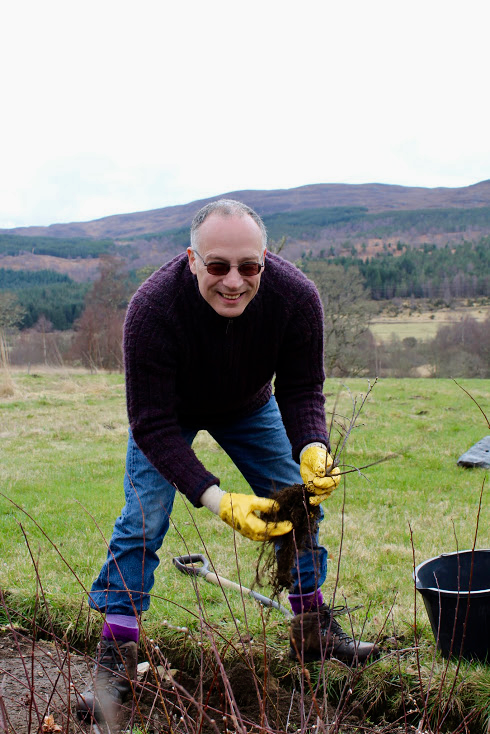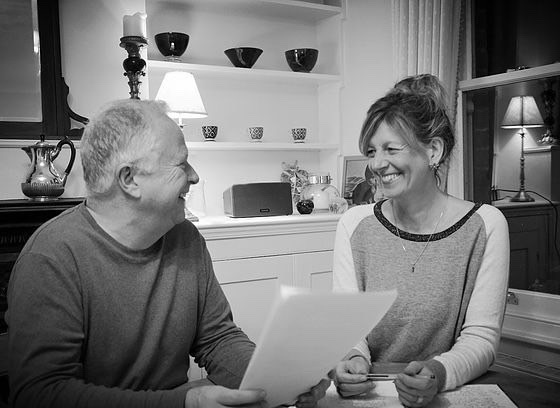This article was written by Dr Bruna Seu from Birkbeck’s Department of Psychosocial Studies. Dr Seu participated in a Cultural Capital debate entitled ‘The trust virus: the future of giving’ on 9 February 2017
 In a climate of economic uncertainty and rampant resentment, what hope is there for giving? Is there a future for altruism in an age of isolation? Are charities the answer or do government and corporations have to take responsibility? These were some of the questions asked at ‘The Trust virus: the future of giving’, a Cultural Capital debate organised by the Y&R London on 9 February 2017. These debates are terribly important for both academics and NGOs as they engage with the complexities and moral dilemmas involved in giving as an act of helping and social responsibility in today’s divided society and conflicted world.
In a climate of economic uncertainty and rampant resentment, what hope is there for giving? Is there a future for altruism in an age of isolation? Are charities the answer or do government and corporations have to take responsibility? These were some of the questions asked at ‘The Trust virus: the future of giving’, a Cultural Capital debate organised by the Y&R London on 9 February 2017. These debates are terribly important for both academics and NGOs as they engage with the complexities and moral dilemmas involved in giving as an act of helping and social responsibility in today’s divided society and conflicted world.
The findings from the four-year research project discussed in the forthcoming book Caring in Crisis, which I co-authored with Shani Orgad (LSE), address some of these questions.
Charity starts at home
All the focus group participants in the study believed that charity does start at home. Yet, to think of this as simply parochialism, in antithesis to universalism, is unhelpful and an over-simplification. Looking at how people perceived the boundaries of their care and social responsibility, we identified nine circles of care from the most inward-looking (some expressed this in terms of ‘me and mine’) to the most universalist (‘the world is my family’ or ‘I’m a citizen of the world’). Worryingly, the majority of participants did not extend their sense of responsibility beyond their local community. This speaks to the power of the ‘inward looking’ attitude at the heart of parochialism. Yet, it is in the daily practices of care that people use in their community that people find a model for taking responsibility for others, near but also afar. Members of the public expressed a wish to care for distant others built on these practice of care they are familiar with, as if the ‘world were a small village’. These practices of care can be a vital resource for NGOs to build on.
On the other hand, Brexit, based on isolation over integration, is feeding on and in turn fuelling processes of ‘othering’ of distant sufferers. Many have commented on how anxiety, verging on paranoia, is at the heart of xenophobic Brexit. This anxiety, fomented for political ends, can have very damaging effects on the capacity and willingness to open empathetically to others. For example, the portrayal of refugee seekers as scroungers, parasites and vermin circulating in the media, blocks empathy and exasperate pre-existing and outdated portrayals of those affected by humanitarian crises. Focus group participants spoke of ‘the Africa thing’, whereby Africa becomes the stereotypical symbol of what is quintessentially wrong with humanitarian causes –– intractable, corrupt, hopeless.
The defensive and oppositional stance of ‘us and them’, at the heart of Brexit, disconnects rather than connects people to others. This is very detrimental to the future of giving to distant sufferers.
This distrust is not limited to refugees
The 2017 Edelman Trust Barometer identified a worrying decline of trust towards NGOs and charities. We also found evidence of a deep crisis of trust between NGOs and their public. In particular, people distrust NGOs when they were perceived to operate as businesses, in competition with each other, and manipulating people to make them donate. Many felt that ‘all they want is my money’. This distrust runs deep. Most people, even those committed to humanitarianism, talked of NGOs constantly ‘hitting on the same note’ which causes saturation and a hardening of attitudes towards giving and NGOs in general.
People are angered by this approach and likened most NGOs to marketers (self-serving and manipulative), in contrast with their wished-for model of NGOs as Good Samaritans (altruistic and good people).
Money is not the future
Although monetary donations are essential in enabling NGOs to operate, they are often a form of fleeting participation in that they give people permission to disengage. We found strong evidence of the negative ‘collateral damage’ from this transactional model of engaging the public, which we call the ‘hit and run’ model of humanitarian communication. This form of communication presents the viewer with an emergency scenario, through emotionally-charged images and contents, asking the viewer to donate money so that NGOs can respond to the emergency on their behalf. Put crudely, members of the public feel ‘hit’ emotionally and then disregarded, while NGOs deliver the help. In the short term the ‘hit and run’ model ‘“works” in so far as it is a successful fundraising tool. For this reason, it is understandable that cash-deprived NGOs resort to it so frequently. But it is counterproductive in terms of long-term public engagement. Participants commented that the ‘hit and run’ model enables people to disengage with a good conscience and doesn’t require commitment.
This is where we can learn a lesson from care in the community. When people talk about their model of caring for others, we found that it is relational rather than transactional, and based on commitment. People feel that the ‘hit and run’ transactional approach is dehumanising for themselves (‘all they want is my money’) and for the beneficiaries.
The future for giving then is not money but connectedness. People feel they want to connect to distant suffering in more meaningful ways, which they model on their everyday ways of caring. These ethics of care are deeply rooted in people’s ways of life. One participant talked of wanting to ‘give blood and tears’, not money. That would make his giving meaningful. If we listen to the symbolic, rather than concrete meaning of this, we learn that the British public are looking for symbolic, cognitive and emotional meaningfulness in their giving. On these, meaningful connectedness to humanitarian issues and deeper public participation over time can be built.


 Since becoming a scientist, I have had the great joy of globe-trotting all over the world from conferences to review panels, from seminars abroad to lecturing at foreign institutions. Such extensive travelling was useful to promote my research, tell people about our latest discoveries, and exchange ideas with fellow scientists in my field. It also provided me the opportunity to publicise the achievements of the research institute I founded in 2003 and directed until October last year, the joint
Since becoming a scientist, I have had the great joy of globe-trotting all over the world from conferences to review panels, from seminars abroad to lecturing at foreign institutions. Such extensive travelling was useful to promote my research, tell people about our latest discoveries, and exchange ideas with fellow scientists in my field. It also provided me the opportunity to publicise the achievements of the research institute I founded in 2003 and directed until October last year, the joint 

 In a climate of economic uncertainty and rampant resentment, what hope is there for giving? Is there a future for altruism in an age of isolation? Are charities the answer or do government and corporations have to take responsibility? These were some of the questions asked at ‘
In a climate of economic uncertainty and rampant resentment, what hope is there for giving? Is there a future for altruism in an age of isolation? Are charities the answer or do government and corporations have to take responsibility? These were some of the questions asked at ‘